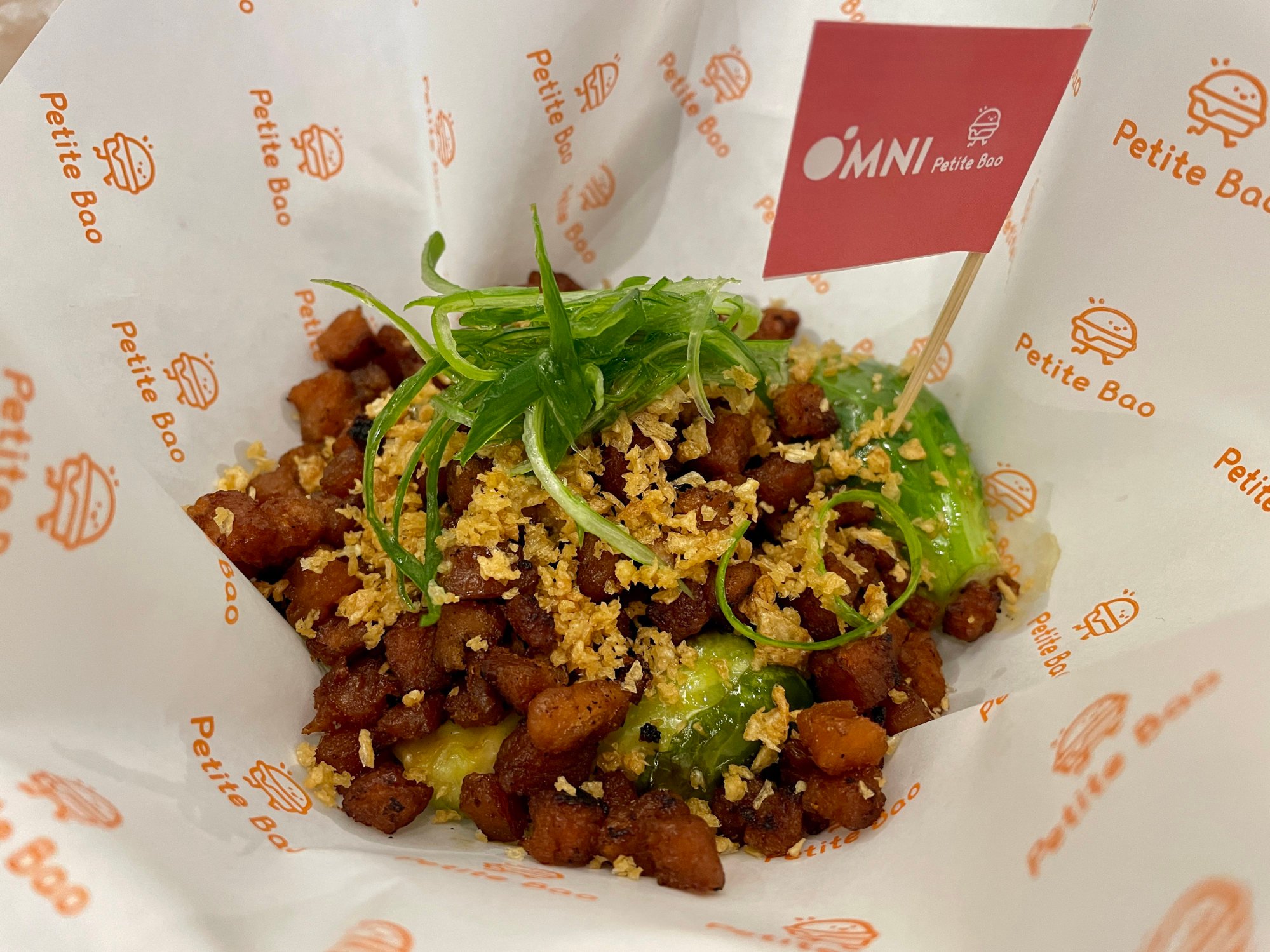
How a Hong Kong couple in Vancouver opened a casual Asian bao burger business after working at high-end restaurant L’Atelier de Joël Robuchon
- Jay Yip and Jessica Hui worked at fine-dining restaurants like Joël Robuchon and Épure, but it was the concept at Hong Kong’s Little Bao that caught their eye
- After moving to Vancouver they opened Petite Bao, which sells Asian bao burgers with fillings from pork belly to Canadian wagyu, and vegan options
When Hongkonger Jay Yip Kin-heng and his wife, Jessica Hui Mung-sze, arrived in Vancouver, Canada, in 2020, they never thought that they would open their own business just two years later.
But last December they launched Petite Bao, which serves Asian-inspired burger fillings between two Chinese-style steamed buns, or bao.
The restaurant has fitted right into its location in Vancouver’s Kitsilano neighbourhood – where there are many small, independent businesses – and has won over residents with its Asian burger concept and vegan options.

“When we first came [to Vancouver] we thought we’d get jobs as employees,” says Yip, 31.

They arrived at the beginning of the coronavirus pandemic in early 2020, after Yip’s mother urged them to join the family in Vancouver.
“We came very quickly and it was an easy decision to make. We first came with one or two suitcases and then went back to Hong Kong to pack up our stuff and move,” he says.
Yip and his family were already Canadian citizens; they immigrated in 2001 when he was 10 years old. He grew up in Vancouver and, after graduating from high school, returned to Hong Kong and studied business administration at Hong Kong Open University.
Vancouver Chinatown museum will be the first to focus on Chinese-Canadians
“I like eating. Eating good food makes me very happy,” he says.
In 2018, he enrolled in Le Cordon Bleu culinary school in Shanghai for a one-year programme.

By this point he had already met Hui, who was working in a shop down the street from the Yips’ business, and their mutual love of food led her to join him in Shanghai after they married, where she learned how to make bread because she loved eating it.
Upon settling in Vancouver, it was hard for the couple to find jobs as Covid-19 pandemic restrictions caused many restaurants to close.
We tried many kinds of fillings and gave them to our relatives to try many times until we got them right
Yip started a catering business, which operated for about two years, and worked as a sous chef at the popular Canadian restaurant chain Earls for about a year and a half. Hui, meanwhile, had to wait for her permanent residency papers to be processed.
By 2022 the couple had decided to take the plunge and open their own place. “We wanted to use local ingredients that are good quality and make casual food for customers,” Yip says.
They wanted to combine Asian food with the popularity of burgers, which led to the bao. It took Hui three months of trial and error working with a locally based Chinese pastry chef to come up with a steamed white bun that was neither too soft nor too dense.
Artist’s watercolours contribute to Vancouver Chinatown’s revival
“We tried many kinds of fillings and gave them to our relatives to try many times until we got them right,” Yip says.
They worked with a graphic designer to come up with the logo of a bao with eyes, a mouth and legs. It’s stamped on every bao they serve.
“One of our customers loved the logo so much that we gave him a cap,” laughs Hui. The couple hope to sell other merchandise, such as T-shirts, in the future.

Popular side dishes at Petite Bao include beef bourguignon poutine made with short ribs, red wine and cheese curds, and Sichuan chicken wings prepared with dried chilli, soy vinaigrette, sesame oil and peanuts.
And, just in time for summer, Yip plans to unveil a brunch menu with Asian influences and possibly dessert.

